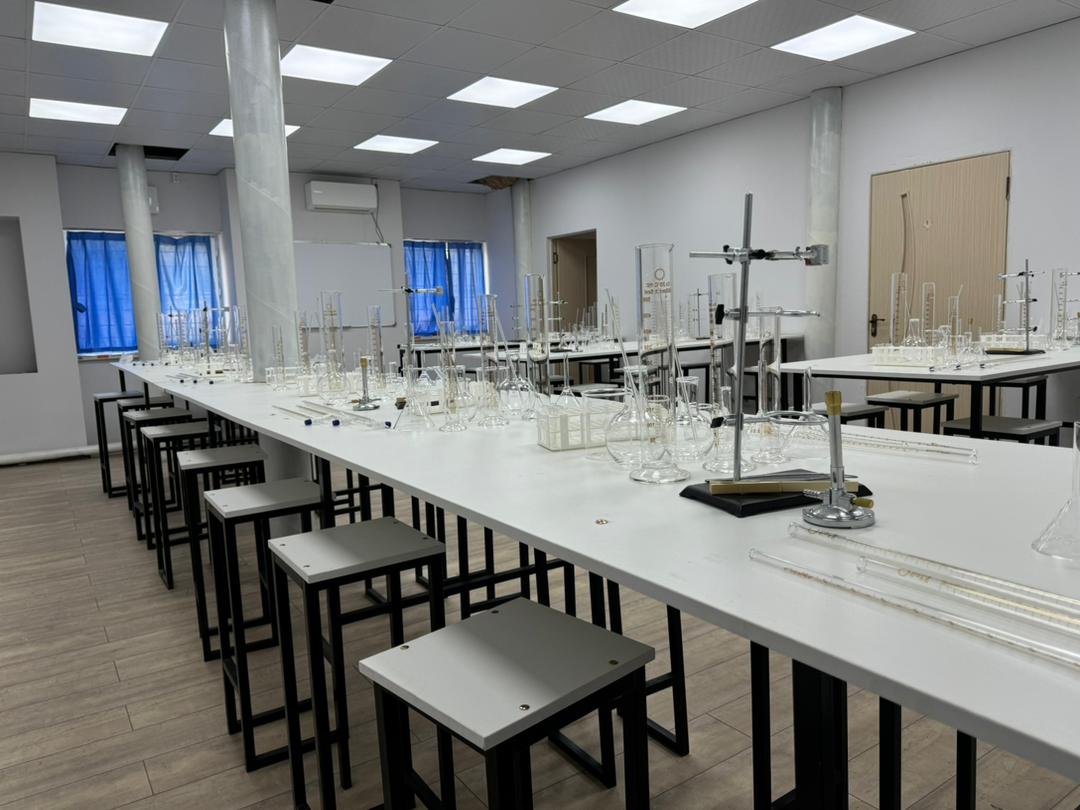Department of Biochemistry
The Department of Biochemistry at KIU-NRZ introduces students to the molecular basis of life and disease. It serves as a core pillar of the MBBS curriculum, helping students understand how biochemical processes relate to health, diagnostics, and treatment.
- Equipped with workbenches, water supply, sinks, gas/electric burners
- Laboratory Equipment & Materials (Colorimeters Semi-auto analyzers Centrifuges (table-top/manual/electric) Spectrophotometers Incubators, Hot air oven, Water bath Glassware)

Team

MSc, DCPIC, PhD (Biochemistry) Lectures

Dr.S.Sakthivel,
MBBS
Tutor

Dr. J.Prabhakaran,
MD (Biochemistry)
Visiting Faculty

Dr .R. Raghavi,
MD (Biochemistry)
External Examiner
Departmental / Course Objectives
- Describe the molecular and functional organization of cell organelles.
- Explain the structure, function, and interrelationships of major biomolecules, and the consequences of their deviations from normal.
- Summarize basic enzymology, its clinical applications, and the effects of disturbed enzymatic activity.
- Describe the processes of nutrient digestion and assimilation, and the consequences of malnutrition.
- Integrate the metabolic pathways of various biomolecules with their regulatory mechanisms.
- Explain the biochemical basis of inherited disorders and their associated sequelae.
- Describe the mechanisms of water, electrolyte, and acid-base balance maintenance, and the consequences of their imbalances.
- Outline the molecular mechanisms of gene expression and regulation, basic biotechnology principles, and their medical applications.
- This course will integrate horizontally and vertically to enable learners to make clinical correlations and understand the cellular and molecular basis of health and disease.
1. Integrate normal physiological functions with anatomical structures, biological bases, clinical features, diagnosis, and therapy, both horizontally and vertically across organ systems.

Competency Framework
- Total Topics: 14
- Total Competencies: 84
- Total Practical Sessions Suggested: 11
- Certification Required: 11
Instructional Delivery
Theory
- Interactive Lectures
- Small Group Discussions (SGDs)
- Self-Directed Learning (SDL)
Practical Skills
- Structured practical instructions
- DOAP Method
Assessments
• Methods: Theoretical (online exams), Practical/Clinical & viva voce.
• Scheduling: daily or weekend exams
• Passing Criteria: >50% in both theory and practical.
• Methods: Theory (Pen-and-paper), Practical/Clinical, viva voce. Logbook Assessment & Professional Development Program (AETCOM):
• Scheduling: mid-semester & semester-end exams.
• Passing Criteria: >50% in both theory and practical.
• Methods: Theory (Pen-and-paper), Practical/Clinical, Viva/Oral & CBME Components Assessment.
• Scheduling: End of MBBS I
• Passing Criteria: > 50% separately in Theory and in Practical in each exam per phase.
- Pasing Criteria: > 50% of the grand score per subject.
- Weightage of the grand score per subject:
-
- University/SA: 60%
- Process assessment: 40%
- Weekend exams (FFA) ➝ 10%
- Mid-semester exam & & semester-end exam (IA) ➝ 10%
- General performance (assignments, seminars, case presentations, problem-solving, community projects, quizzes, competency certifications, museum study, logbooks, and SDL skills) ➝ 10%
- Practical/Clinical performance ➝ 10%


Grading
| Letter Grade | Grade Point | % of Marks |
| O (Outstanding) | 10 | 86-100 |
| A+ (Excellent) | 9 | 70-85 |
| A (Very Good) | 8 | 60-69 |
| B (Good) | 7 | 55-59 |
| C (Above Average) – Passing criteria | 6 | 50-54 |
| F (Fail) / RA (Reappear) | 0 | Less than 50 |
| Ab (Absent) | 0 | - |
| NC (Not Completed) | 0 | - |
| RC (Repeat the Course) | 0 | 0 |
Recommended literature
Textbook:
- Vasudevan DM, Sreekumari S, Vaidyanathan K. Textbook of Biochemistry for Medical Students. 10th ed. New Delhi: Jaypee Brothers Medical Publishers; 2024.
- Shanmugam A, Ramadevi K. Fundamentals of Biochemistry for Medical Students. 8th ed. New Delhi: Wolters Kluwer India; 2016








